Russian Psychologists on:
[Wikipedia]
[Google]
[Amazon]
 This list of Russian physicians and
This list of Russian physicians and


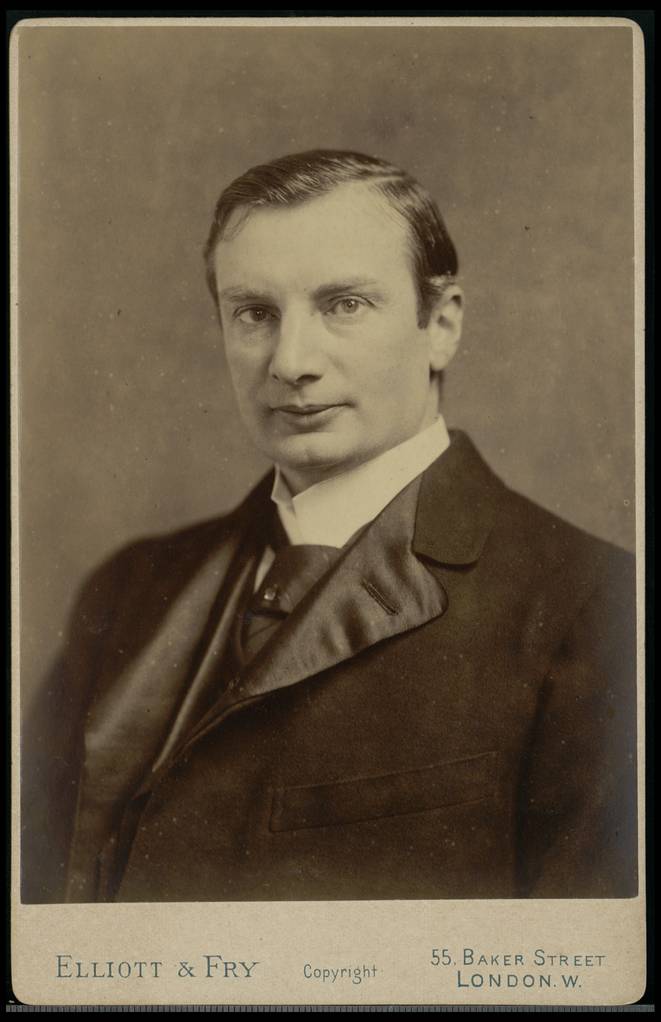

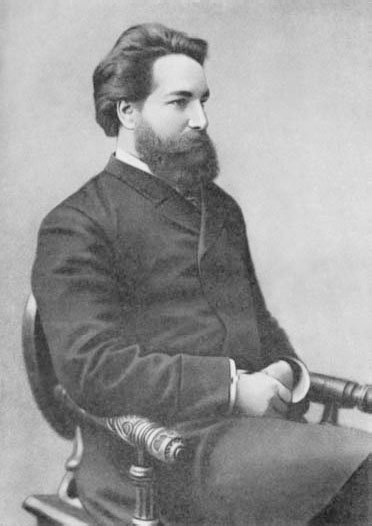
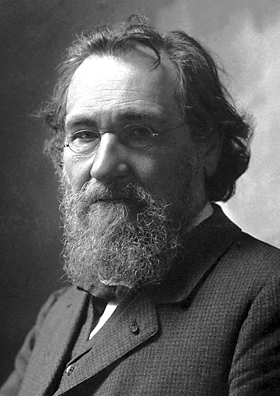
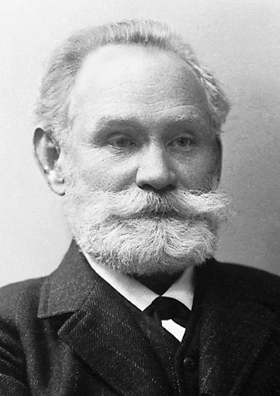

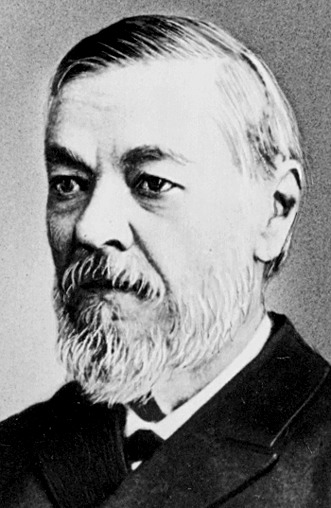
''Memoirs of a Physician''
/ref> *
 This list of Russian physicians and
This list of Russian physicians and psychologist
A psychologist is a professional who practices psychology and studies mental states, perceptual, cognitive, emotional, and social processes and behavior. Their work often involves the experimentation, observation, and interpretation of how indi ...
s includes the famous physicians and psychologists, medical scientists and medical doctors from the Russian Federation, the Soviet Union, the Russian Empire and other predecessor states of Russia. Physicians of all specialties may be listed here.
Alphabetical list
__NOTOC__A
* Nikolai Amosov, prominentcardiovascular surgery
Cardiac surgery, or cardiovascular surgery, is surgery on the heart or great vessels performed by cardiac surgeons. It is often used to treat complications of ischemic heart disease (for example, with coronary artery bypass grafting); to corr ...
developer, best-selling author

B
* Aleksandr Bakulev, prominent cardiovascular surgery developer * Vladimir Bekhterev, neuropathologist, founder ofobjective psychology
Vladimir Mikhailovich Bekhterev ( rus, Влади́мир Миха́йлович Бе́хтерев, p=ˈbʲextʲɪrʲɪf; January 20, 1857 – December 24, 1927) was a Russian neurologist and the father of objective psychology. He is best know ...
, noted the role of the hippocampus in memory, major contributor to reflexology, studied the Bekhterev’s Disease
*Vladimir Betz
Volodymyr Oleksiyovych Betz( ua, Володи́мир Олексійович Бец) ( – )Kushchayev, Sergiy V., et al. "The Discovery of the Pyramidal Neurons: Volodymyr Betz and a New Era of Neuroscience." JOURNAL OF NEUROSURGERY. Vol. 113. ...
, discovered Betz cells of primary motor cortex
The primary motor cortex (Brodmann area 4) is a brain region that in humans is located in the dorsal portion of the frontal lobe. It is the primary region of the motor system and works in association with other motor areas including premotor co ...
* Peter Borovsky, described the causative agent of Oriental sore
* Sergey Botkin, major therapist and court physician
* Nikolay Burdenko, major developer of neurosurgery
* Konstantin Buteyko, developed the Buteyko method for the treatment of asthma and other breathing disorders
C
* Mikhail Chumakov, co-discovered tick-borne encephalitis, co-developed oral polio vaccine
D
*Livery Darkshevich
Liverij Osipovich Darkshevich (russian: Ливерий Осипович Даркшевич; – March 28, 1925) was a Russian neurologist who was a native of Yaroslavl. His surname is sometimes spelled Darkschewitsch in medical literature.
...
, neurologist, described the nucleus of posterior commissure
* Vladimir Demikhov, major pioneer of transplantology
Organ transplantation is a medical procedure in which an organ is removed from one body and placed in the body of a recipient, to replace a damaged or missing organ. The donor and recipient may be at the same location, or organs may be transpo ...
F
* Vladimir Filatov,ophthalmologist
Ophthalmology ( ) is a surgery, surgical subspecialty within medicine that deals with the diagnosis and treatment of eye disorders.
An ophthalmologist is a physician who undergoes subspecialty training in medical and surgical eye care. Followin ...
, corneal transplantation
Corneal transplantation, also known as corneal grafting, is a surgical procedure where a damaged or diseased cornea is replaced by donated corneal tissue (the graft). When the entire cornea is replaced it is known as penetrating keratoplasty a ...
pioneer
* Svyatoslav Fyodorov, inventor of radial keratotomy


G
*Pyotr Gannushkin
Pyotr Borisovich Gannushkin (russian: Пётр Бори́сович Га́ннушкин; March 8, 1875 – February 23, 1933) was a Russian psychiatrist who developed one of the first theories of psychopathies known today as personality disorder ...
, psychiatrist, pioneer researcher of psychopathies known today as personality disorders
* Oleg Gazenko, founder of space medicine, selected and trained Laika, the first space dog
*Georgy Gause
Georgy Frantsevich Gause (russian: Гео́ргий Фра́нцевич Га́узе; December 27, 1910 – May 2, 1986), was a Soviet and Russian biologist and evolutionist, who proposed the competitive exclusion principle, fundamental to the s ...
, inventor of gramicidin S and other antibiotics
*Vera Gedroitz
Knyaz, Princess Vera Ignatievna Gedroits (russian: Ве́ра Игна́тьевна Гедро́йц, p=ˈvʲɛrə ɪɡˈnatʲjɪvnə ɡʲɪˈdrojts ; 7 April 1870 Old Style and New Style dates, O.S./19 April 1870 N.S. – March 1932, literary p ...
, world's first female professor of surgery
Surgery ''cheirourgikē'' (composed of χείρ, "hand", and ἔργον, "work"), via la, chirurgiae, meaning "hand work". is a medical specialty that uses operative manual and instrumental techniques on a person to investigate or treat a pat ...
* Hans-Werner Gessmann, one of the world's most famous professor of clinical psychology
Clinical psychology is an integration of social science, theory, and clinical knowledge for the purpose of understanding, preventing, and relieving psychologically based distress or dysfunction and to promote subjective well-being and persona ...
, founder of humanistic psychodrama psychotherapy
Psychotherapy (also psychological therapy, talk therapy, or talking therapy) is the use of psychological methods, particularly when based on regular personal interaction, to help a person change behavior, increase happiness, and overcome pro ...
*Yuliya Gippenreyter
Julia Gippenreiter (Russian:Ю́лия Бори́совна Гиппенре́йтер; born 25 March 1930, in Moscow) is a modern Russian psychologist, a specialist in experimental psychology, psychophysiology, family therapy and neuro-linguisti ...
, researcher in experimental psychology, family therapy and neuro-linguistic programming
*Ilya Gruzinov
Ilya Egorovich Gruzinov (Russian language, Russian: Илья Егорович Грузинов; 1781 – January 1813) was an Imperial Russian professor of anatomy and physiology at Imperial Moscow University. He discovered in 1812 that the actua ...
, found that vocal folds are the source of phonation
The term phonation has slightly different meanings depending on the subfield of phonetics. Among some phoneticians, ''phonation'' is the process by which the vocal folds produce certain sounds through quasi-periodic vibration. This is the defini ...
H
* Waldemar Haffkine, invented the first vaccines againstcholera
Cholera is an infection of the small intestine by some strains of the bacterium ''Vibrio cholerae''. Symptoms may range from none, to mild, to severe. The classic symptom is large amounts of watery diarrhea that lasts a few days. Vomiting and ...
and bubonic plague
Bubonic plague is one of three types of plague caused by the plague bacterium (''Yersinia pestis''). One to seven days after exposure to the bacteria, flu-like symptoms develop. These symptoms include fever, headaches, and vomiting, as well a ...

I
* Gavriil Ilizarov, invented Ilizarov apparatus, developed distraction osteogenesisK
* Nikolai Korotkov, inventedauscultatory blood pressure measurement
Blood pressure (BP) is the pressure of circulating blood against the walls of blood vessels. Most of this pressure results from the heart pumping blood through the circulatory system. When used without qualification, the term "blood pressure" r ...
, pioneer of vascular surgery
Vascular surgery is a surgical subspecialty in which diseases of the vascular system, or arteries, veins and lymphatic circulation, are managed by medical therapy, minimally-invasive catheter procedures and surgical reconstruction. The specialty ...
* Sergey Korsakov, studied the effects of alcoholism on the nervous system, described Korsakoff's syndrome
Korsakoff syndrome (KS) is a disorder of the central nervous system characterized by amnesia, deficits in explicit memory, and confabulation. This neurological disorder is caused by a deficiency of thiamine (vitamin B1) in the brain, and it is ...
, introduced paranoia concept
*Aleksei Kozhevnikov
Aleksei Yakovlevich Kozhevnikov (russian: Алексе́й Я́ковлевич Коже́вников) (5 March 1836 - 23 October 1902) was a Russian Empire neurologist and psychiatrist who was a native of Ryazan.
Biography
From 1853 until 1858 ...
, neurologist and psychiatrist, described the epilepsia partialis continua

L
* Aleksey Leontyev, founder of activity theory in psychology * Peter Lesgaft, founder of the modern system of physical education in Russia * Andrey Yevgenyevich Lichko, adolescent psychiatrist * Alexander Luria, co-developer of activity theory and cultural-historical psychology, major researcher of aphasiaM
* Ilya Mechnikov, pioneer researcher of immune system, probiotics and phagocytosis; coined the term "gerontology
Gerontology ( ) is the study of the social, cultural, psychological, cognitive, and biological aspects of aging. The word was coined by Ilya Ilyich Mechnikov in 1903, from the Greek , ''geron'', "old man" and , ''-logia'', "study of". The fie ...
", Nobel Prize in Medicine winner
*Lazar Minor
Lazar Solomonovich Minor (russian: Ла́зарь Соломо́нович Минор; 17 December 1855 – 1942) was a Russian neurologist who was a native of Vilnius.
Minor received his education at the University of Moscow, where he was a stud ...
, neurologist, described Minor's disease
Minor's disease, a syndrome involving the sudden onset of back pain and paralysis caused by haemorrhage into the spinal cord substance, was named after the Russian neurologist, Lazar Solomonovich Minor (1855–1942).
The term " Minor's syndrome ...

N
* Pyotr Nikolsky, dermatologist, discoverer of Nikolsky's sign *Raissa Nitabuch
Raissa Nitabuch (born 1859) was a Russian pathologist who is known for her histological studies of the human placenta. The layer of fibrin that was thought to separate the uterine decidua from the fetoplacental trophoblast after birth was named t ...
, pathologist, the first to describe the spiral arteries which connect the uterine and placental blood flow during pregnancy.
O
* Alexey Olovnikov, predicted existence of telomerase, suggested thetelomere hypothesis of aging
A telomere (; ) is a region of repetitive nucleotide sequences associated with specialized proteins at the ends of linear chromosomes. Although there are different architectures, telomeres, in a broad sense, are a widespread genetic feature mos ...
and the telomere relations to cancer

P
* Ivan Pavlov, founder of modern physiology, the first to research classical conditioning, influencedcomparative psychology
Comparative psychology refers to the scientific study of the behavior and mental processes of non-human animals, especially as these relate to the phylogenetic history, adaptive significance, and development of behavior. Research in this area addr ...
and behaviorism
Behaviorism is a systematic approach to understanding the behavior of humans and animals. It assumes that behavior is either a reflex evoked by the pairing of certain antecedent (behavioral psychology), antecedent stimuli in the environment, o ...
by his works on reflex
In biology, a reflex, or reflex action, is an involuntary, unplanned sequence or action and nearly instantaneous response to a stimulus.
Reflexes are found with varying levels of complexity in organisms with a nervous system. A reflex occurs ...
es, Nobel Prize in Medicine winner
* Nikolay Pirogov, pioneer of ether anaesthesia and modern field surgery, the first to perform anaesthesia in the field conditions, invented a number of surgical operations
* Viktor Protopopov, founder of his own pathophysiological school of thought, namesake of Protopopov's syndrome
R
* Leonid Rogozov, performed anappendectomy
An appendectomy, also termed appendicectomy, is a Surgery, surgical operation in which the vermiform appendix (a portion of the intestine) is removed. Appendectomy is normally performed as an urgent or emergency procedure to treat complicated acu ...
on himself during the 6th Soviet Antarctic Expedition, a famous case of self-surgery
Self-surgery is the act of performing a surgical procedure on oneself. It can be an act taken in extreme circumstances out of necessity, an attempt to avoid embarrassment, legal action, or financial costs, or a rare manifestation of a psychological ...
*Grigory Rossolimo
Grigory Ivanovich Rossolimo (russian: Григо́рий Ива́нович Россоли́мо) ( – September 1928) was a Russian Empire and Soviet neurologist who was a native of Odessa. (He was of Greek origin; his grandfather had gone sail ...
, pioneer of child neuropsychology
Neuropsychology is a branch of psychology concerned with how a person's cognition and behavior are related to the brain and the rest of the nervous system. Professionals in this branch of psychology often focus on how injuries or illnesses of t ...
* Vladimir Roth, neuropathologist
Neuropathology is the study of disease of nervous system tissue, usually in the form of either small surgical biopsies or whole-body autopsies. Neuropathologists usually work in a department of anatomic pathology, but work closely with the clinic ...
, described meralgia paraesthetica

S
* Ivan Sechenov, founder of electrophysiology and neurophysiology, author of the classic work ''Reflex
In biology, a reflex, or reflex action, is an involuntary, unplanned sequence or action and nearly instantaneous response to a stimulus.
Reflexes are found with varying levels of complexity in organisms with a nervous system. A reflex occurs ...
es of the Brain''
*Vladimir Serbsky
Vladimir Petrovich Serbsky (russian: Влади́мир Петро́вич Се́рбский, in Bogorodsk – in Moscow) was a Russian psychiatrist and one of the founders of forensic psychiatry in Russia. The author of ''The Forensic Psycho ...
, founder of forensic psychiatry in Russia
*Nikolay Sklifosovskiy
Nikolai Vasilyevich Sklifosovsky (; — ) was a Russian surgeon and physiologist of Moldavian origin. He was born near the town of Dubasari, which is now in Transnistria. Sklifosovsky was a professor of medicine in Saint Petersburg, Kiev ...
, prominent 19th-century field surgeon
* Victor Skumin, first to describe a previously unknown disease, now called Skumin syndrome
Skumin ( rus, Ску́мин, p=ˈskumʲɪn) is a Lithuanian, Polish and Russian masculine nobleman surname, its feminine counterpart is Skumina.
Notable people with the surname
* Alexander Skumin (1748–1775), statesman of the Polish–Lithuan ...
(a disorder of the central nervous system of some patients after a prosthetic heart valve)
*Lina Stern
Lina Solomonovna Stern (or Shtern; russian: Лина Соломоновна Штерн; 26 August 1878 – 7 March 1968) was a Soviet biochemist, physiologist and humanist whose medical discoveries saved thousands of lives at the fronts of World ...
, pioneer researcher of blood–brain barrier
The blood–brain barrier (BBB) is a highly selective semipermeable membrane, semipermeable border of endothelium, endothelial cells that prevents solutes in the circulating blood from ''non-selectively'' crossing into the extracellular fluid of ...
U
*Fyodor Uglov
Fyodor Grigorievich Uglov (russian: Фёдор Григорьевич Углов; 5 October ( O.S. 22 September) 1904 – 22 June 2008) was a Soviet and Russian surgeon. In 1994 he was listed by Guinness World Records as the oldest practicing ...
, oldest practicing surgeon in history
* Igor Ursov
Igor G. Ursov (January 20, 1927 – June 20, 2002) ( Russian: ''Игорь'' ''Урсов'' ) was a Soviet and Russian tuberculosis specialist and organizer of public health who achieved tuberculosis control breakthroughs in Russia.
Biography
I ...
, phthisiatrist
Throughout history, the disease tuberculosis has been variously known as consumption, phthisis, and the White Plague. It is generally accepted that the causative agent, ''Mycobacterium tuberculosis'' originated from other, more primitive organi ...
, the inventor of intravenous
Intravenous therapy (abbreviated as IV therapy) is a medical technique that administers fluids, medications and nutrients directly into a person's vein. The intravenous route of administration is commonly used for rehydration or to provide nutrie ...
intermittent
Intermittency is a behavior of dynamical systems: regular alternation of phases of apparently periodic and chaotic dynamics.
Intermittent or intermittency may also refer to:
*Intermittent river or stream, the one that ceases to flow every year or ...
bactericidal
A bactericide or bacteriocide, sometimes abbreviated Bcidal, is a substance which kills bacteria. Bactericides are disinfectants, antiseptics, or antibiotics.
However, material surfaces can also have bactericidal properties based solely on their ...
tuberculosis therapy
Tuberculosis management describes the techniques and procedures utilized for treating tuberculosis (TB).
The medical standard for active TB is a short course treatment involving a combination of isoniazid, rifampicin (also known as Rifampin), py ...
V
* Alexander Varshavsky, researched ubiquitination, Wolf Prize in Medicine winner * Vikenty Veresayev, Russian/Soviet doctor, author of ''Memoirs of a Physician''/ref> *
Luka Voyno-Yasenetsky
Luke of Simferopol (Luke, russian: Архиепи́скоп Лука́, born Valentin Felixovich Voyno-Yasenetsky, russian: Валенти́н Фе́ликсович Во́йно-Ясене́цкий; April 27 or May 9, 1877 in Kerch – June 11, ...
, founder of purulent surgery, saint
* Lev Vygotsky, founder of cultural-historical psychology, major contributor to child development and psycholinguistics
Psycholinguistics or psychology of language is the study of the interrelation between linguistic factors and psychological aspects. The discipline is mainly concerned with the mechanisms by which language is processed and represented in the mind ...
, introduced zone of proximal development and cultural mediation concepts
W
* Josias Weitbrecht, first to describe the construction and function ofintervertebral disc
An intervertebral disc (or intervertebral fibrocartilage) lies between adjacent vertebrae in the vertebral column. Each disc forms a fibrocartilaginous joint (a symphysis), to allow slight movement of the vertebrae, to act as a ligament to hold t ...
s
Y
* Sergei Yudin, inventor ofcadaveric blood transfusion Cadaveric blood transfusion is the transfusion of blood from a dead body to a living person.
History
In 1929, surgeon Vladimir Shamov of Kharkiv, USSR, reported the experimental use of cadaveric blood and demonstrated the absence of toxicity. Ru ...
Z
*Alexander Zaporozhets
Aleksandr Vladimirovich Zaporozhets ( rus, Александр Владимирович Запорожец, p=zəpɐˈroʐɨt͡s; , Kyiv, Russian Empire — October 7, 1981, Moscow. Soviet Union) was a Soviet developmental psychologist and a studen ...
, developmental psychologist, collaborator of Vygotsky, Luria, and Leontiev, once head of the Kharkov School of Psychology
* Bluma Zeigarnik, psychiatrist, discovered the Zeigarnik effect, founded experimental psychopathology
Psychopathology is the study of abnormal cognition, behaviour, and experiences which differs according to social norms and rests upon a number of constructs that are deemed to be the social norm at any particular era.
Biological psychopatholo ...
See also
*List of physicians
This is a list of famous physicians in history.
Chronological lists
Ancient physicians
30th century BCE to 4th century CE
* List of ancient physicians
Post-classical physicians
5th century CE to 15th century CE
* List of post-classical ph ...
*Psychiatry in the Soviet Union
There was systematic political abuse of psychiatry in the Soviet Union, based on the interpretation of political opposition or dissent as a psychiatric problem. It was called "psychopathological mechanisms" of dissent.
During the leadership ...
* List of Russian scientists
* List of Russian inventors
* Science and technology in Russia
References
{{DEFAULTSORT:Russian physicians and psychologists, list of Physicians and psychologists Russians Russian psychologists, list of